Andrews’ sweeping pokie changes threaten to spread to NSW
NSW hoteliers were toasting the defeat of Dominic Perrottet and his ambitious pokie reforms but another threat has emerged from the south in the form of Daniel Andrews.
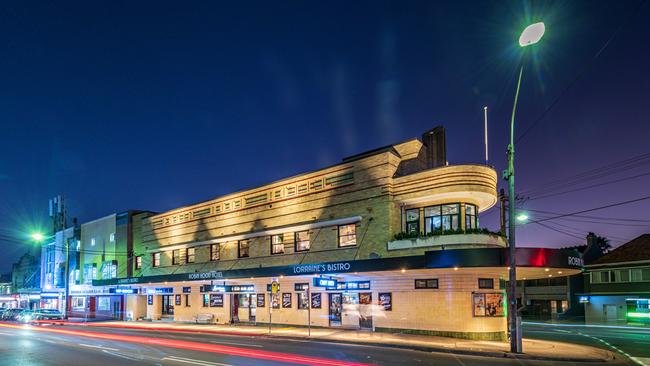
The Robin Hood Hotel - an institution in Sydney’s eastern suburbs - looked set to attract a swag of merry buyers when it hit the market at the end of March with a $60m-plus price tag.
Labor had been restored to power in NSW, defeating the Perrottet government and the former premier’s push to make all pokies in the state cashless as well as forcing gaming operators to collect more data on customers.
The threat of strict anti-pokies rules put the handbrake on the pub market - which had all but stalled.
Chris Minns, who had vowed for a more softer approach, had become the toast of publicans - and hotel agents - looking to sell properties.
But almost four months later, the Robin Hood, which takes prime position at Charing Cross, remains unsold. And south of the NSW border another threat has emerged: Daniel Andrews.
The Victorian Premier shocked the hoteliers and pokie venue operators this week when he announced sweeping reforms aimed at combating problem gambling.
Proposed changes include smaller spending limits, mandatory closing hours and slower spin speeds - a package that may be enough to pressure Minns to adopt a tougher approach and knock the froth of a bubbly pub market that hit a record $2bn in property sales in 2021.
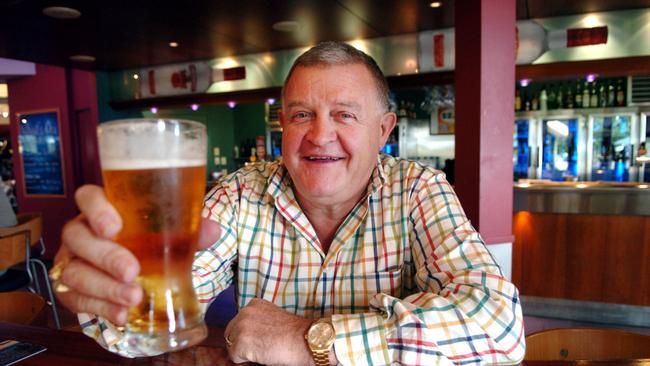
Billionaire pokies baron Bruce Mathieson - which owns 15 per cent of ASX-listed Endeavour Group - accused Andrews of changing the terms of 10-year pokie leases midway through contract. About $200m was wiped off of the value of his Endeavour shares on Monday, with more than $1bn was blasted from the company’s market cap as investors dumped the stock.
Endeavour chief executive Steve Donohue has now moved to get ahead of the Victorian government, announcing the company will slash opening hours at its pokie venues in the state by the end of August - 10 months ahead of Andrews’s proposed deadline.
It hopes that it can show regulators that it is a responsible gaming operator and end uncertainty about what the final shape of the reforms will take.
The reality, according to David Kingston - founder of K Capital and former Rothschild managing director who has invested in hotels - is that the pub market is facing a perfect storm that will hammer prices 20-30 per cent.
In his view, hotel prices had risen excessively in recent years and were now coming back to reality amid rising interest rates, tighter bank lending requirements, a crunch in consumer discretionary spending as well as the ongoing tightening of gaming regulation.
“A lot of people just think our pubs are recession proof. That’s rubbish,” Kingston says.
“A lot of people think ‘Oh, I’d love to own my own pub’. So it’s not a clinical thing like officers or industrial properties. There’s a fair bit of emotion in them as well.”
“But what’s happened is they’ve had a massive boom and they went to prices that were unsustainable.”
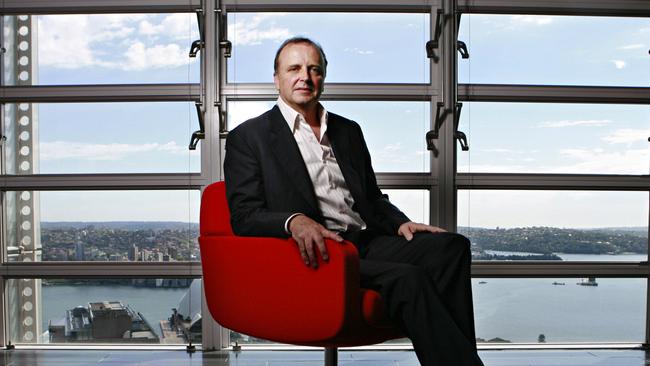
Kingston highlights the collapse of pub and hotel operator National Leisure & Gaming a decade ago following the financial crisis as proof that hotels aren’t recession proof. Then there is the now-defunct listed pub fund ING Real Estate, which was reborn as Lantern Hotel Group after hitting tough times.
But despite the current challenges, Kingston is more optimistic about the pub market’s longer-term prospects.
“They’re not building any more hotels, they’re not issuing any more hotel licences.
“It’s a good sector. It just sort of got carried away and it’s just coming back to reality now”.
It is a similar view shared by Mathieson, who was not fazed about his paper loss on Monday after Endeavour share plummeted. “As far as I’m concerned, this is still a fabulous business,” Mathieson says.
“My son and I looked at a couple of hotels - even as late as last week - and the prices and all that is still very, very good. And the reason being because they are such a consistent, long-term business.
“The big thing that people forget is replacement value. Would you get those permits again and all that sort of thing? There is a lot to it really.”
But Mathieson says interest rate moves and bank tightening also influence the market. “A lot of it is reliant on what the Reserve Bank does and what banking is doing - how much they’ll lend and all these sorts of things.”
“Beforehand, say you could get 60 per cent comfortably from the banks, they might drop it to 55 per cent, I don’t know. All of these things play such a big part.”
Last week, The Imperial Hotel - which featured in The Adventures of Priscilla, Queen of the Desert - in Sydney’s inner city Erskineville sold to Universal Hotels but for an undisclosed sum.
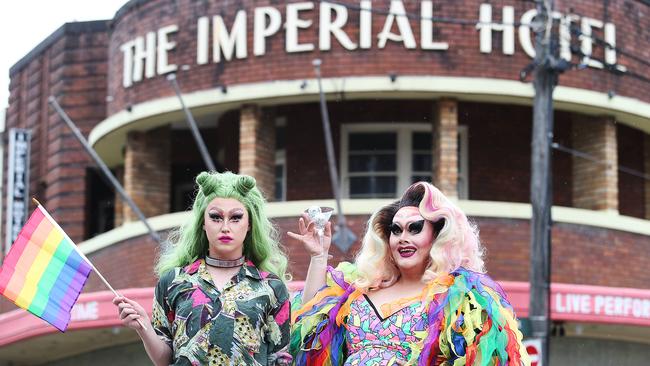
Hotel valuations are relatively straightforward - like any business it is multiple of earnings. Leasehold pubs have been selling for about 10 times earnings, while freehold has fetched considerably more. Some in the industry predict that multiples may slide to seven or eight times - still a reasonable return.
But the uncertainty around gaming reform may force some buyers to sit on the sidelines. E&P analyst Phillip Kimber said Endeavour’s share price fall suggested that about 20 per cent could be wiped off Endeavour’s pokie revenue.
Victoria is Endeavour’s biggest pokie market, with about 4700 machines. Mr Kimber said every 1 per cent decline in pokie revenue resulted in $8.6m in lost sales for the group.
Morgan Stanley analyst Melinda Baxter said: “There are now significant moving parts driving potential hotel earnings risk to Endeavour” following Victoria’s proposed reforms.
“We note all reforms are targeted at reducing problem gambling, money laundering and in turn EGM (electronic gaming machine) spend. With NSW, Vicroria and Tasmania (which represent about 50 per cent of EDV’s gaming fleet) now looking at industry wide reforms, we see the risk to medium term earnings as intensifying,” Baxter says.
“By way of scenario analysis, a 10/15/20 per cent assumed reduction in national hotel EGM spend is estimated to have a 3/5/6 per cent impact on Endeavour’s group EBIT.
“We reduce our hotel revenue growth assumption to 0 per cent in FY25/26 to capture potential EGM spend weakness under a tighter regulatory regime, however acknowledge downside risk to these assumptions as more details of reforms are decided upon.”
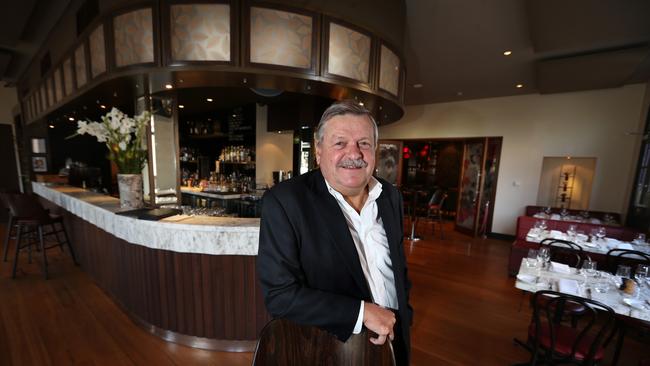
While pokies are the main - if not sole - profit driver at gaming pubs, non gaming venues are beginning to notice a slowdown from the Reserve Bank’s most aggressive series of interest rates in 30 years.
Billionaire Computershare founder Chris Morris, who owns Colonial Leisure Group pub portfolio that includes Portsea Hotel and The Albert Park Hotel and has no pokies, says the market is “very soft”, citing “the cost of living, absolutely” and the hit to discretionary spending.
“We’re running really high class pubs, about 30 pubs, and that’s absolutely affected. And our brewery is substantially down, which is the same as most brewers around Australia, especially craft brewers - if there are many left after this,” Morris says.






To join the conversation, please log in. Don't have an account? Register
Join the conversation, you are commenting as Logout